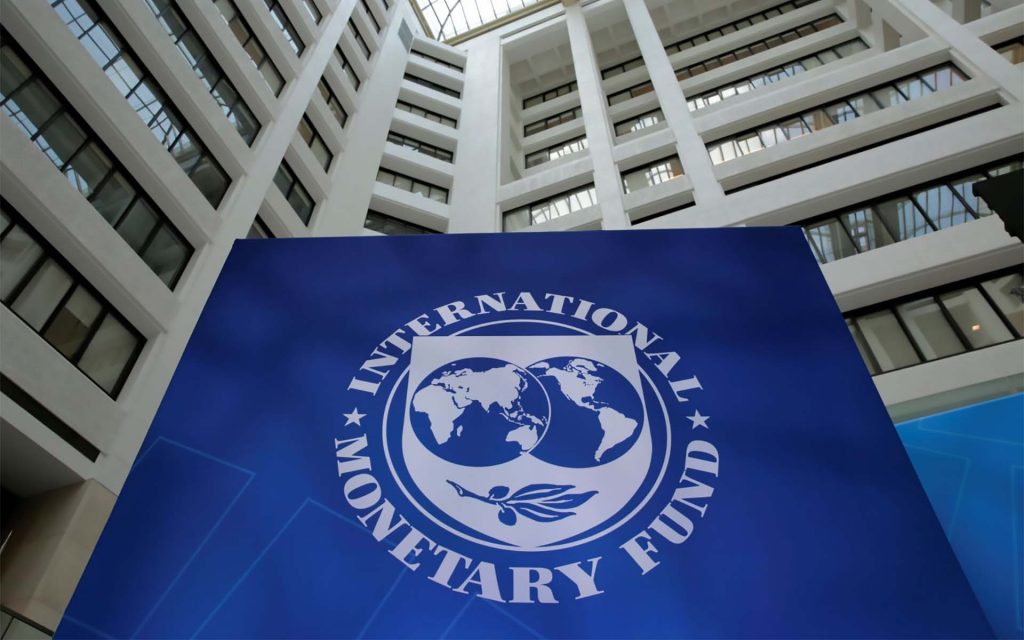- IMF advice Federal Government to increase tax
- Express confidence in the new administration
It is no news that Nigeria spends the majority, up to 90 per cent of its revenue on debt servicing. This has continually weakened the government’s strength to drive needed reforms in the economy and strengthen the nation’s currency. The International Monetary Fund (IMF) has raised concerns over Nigeria’s increasing debt-to-GDP ratio which it projects to rise by 4.3 per cent from 38.8 per cent in 2024, continuing an upward trend that began in 2019 when the ratio was at 21.9 per cent.
According to IMF’s recent report, ‘Africa: Special Issue: In Pursuit of Stronger Growth and Resilience’, Nigeria’s real GDP is expected to grow from 2.9 per cent in 2023r to 3.1 per cent in 2024. The report also anticipates Nigeria’s GDP to reach $489.80 billion by the end of this year and peak at $504.99 billion in 2024.
“These projections come amidst a backdrop of multiple economic challenges, including worldwide inflation, high borrowing costs, exchange-rate pressures, political instability, and a sluggish global economy.”
The IMF report was sparked by President Bola Tinubu’s proposed ₦216 trillion budget for Nigeria in 2024, which could exacerbate the fiscal pressure on the country due to high borrowing costs, inflation, and a worsening cost-of-living crisis.
Recently, the Debt Management Office (DMO), reported an increase in the country’s total public debt to ₦87.38 trillion at the end of Q2’23, composed of ₦33.25 trillion as external debt and ₦54.13 trillion as internal debt.
The IMF while commending the fuel subsidy removal policy and foreign exchange unification initiative to translate to economic growth and stability, noted that Nigerian policymakers must urgently complement the fuel subsidy removal with a set of policies that could ameliorate the economic challenges facing the country.
While noting that the subsidy removal policy and foreign exchange unification initiative will not yield desirable outcomes unless monetary policy are tightened. It therefore advised the Federal Government to collect more taxes to fund the national budget and pay public debts,
“So, you have a medley of things mainly rooted in the fiscal challenges that Nigeria has faced, not having tax revenues. At the same time, this is a country with incredible potential and we have seen reforms moving in the right direction in recent months. What is needed, we feel, is making the reforms holistic and help reinforce each other.
Just as things were not reinforcing each other in the past, I think there is scope to make the reforms reinforce each other,” IMF Africa Department Director, Abebe Selassie, said during a press briefing on the Sub-Saharan Africa Regional Economic Outlook at the ongoing World Bank Group/International Monetary Fund Meeting in Marrakech, Morocco.
The IMF director said Nigeria’s debt was still manageable but noted that more revenue must be generated to service it. He continued that, unlike other African countries, he is not aware of Nigeria moving to restructure its bilateral debt which will continue to eat deep into the country’s revenue as the debts will yield higher interest.
“I am not aware of any discussions that are going on debt profiling and restructuring in Nigeria. There are, of course, like elsewhere in the region, debt pressures. And I think in Nigeria, by far the most important cause of the pressures is the fact that the government doesn’t generate enough tax revenues for all the services it needs to provide.
[READ ALSO] FEC Approves $1.5bn Loan from World Bank, Prepares 2024 Budget
So, interest payment as a share of revenues is very high and does not leave much room to spend on other issues. I think that is the key issue and the one that needs to be worked on.”
“When we look at the debt in Nigeria, we sense that the stock is manageable in general. It’s the debt servicing that is much more difficult. And the debt servicing is hampered, as I said earlier, by the country not generating enough non-oil tax revenues. I think that is by far the most important area of reform, the most important area of work that there is for any administration in Nigeria,” Selassie added.
Selassie, however, said the leaders at the Central Bank of Nigeria and the Ministry of Finance were new, adding that there was a need to give them more time to act.
He expressed confidence in their ability to make the right economic decisions, saying, “I think we have to give a bit of time to the new administration also, I mean, the central bank governor has just been appointed. The Minister of Finance has only been in office for a few weeks. So, we’re hopeful that they will move in the right direction, and we stand there to provide any policy advice the government needs.”
Furthermore, the IMF report stated that Ethiopia is facing contrasting economic growth projections from the IMF and its government. The IMF estimates a real GDP growth of 6.1 per cent by the end of this year and 6.2 per cent in 2024, while Ethiopia’s President Sahle-Work Zewde reported a higher growth of 7.5 per cent for the fiscal year 2022/23 and a target of 7.9 per cent for the current fiscal year.
“Despite these discrepancies, Ethiopia is predicted to outperform other East African economies like Kenya and Uganda in 2023. However, inflation remains a significant concern in Ethiopia, with a rate of 28.8 per cent in July this year and food inflation at 27 per cent. The National Bank of Ethiopia aims to decrease inflation below 20 per cent by 2024 and further to below 10 per cent by 2025 through stricter monetary policies. Yet, the IMF report implies that inflationary pressures might persist due to foreign currency shortages and swift currency depreciation.”












